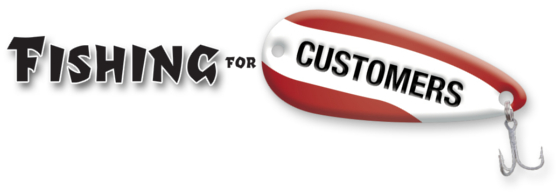Word-of-mouth occurs when, through surprise, your customer has become emotional about you.
It can happen when astonishment leaves her delighted. Alternately, it can happen when disillusion causes dismay. The first produces positive word-of-mouth. The second, negative.
But either way, for word-of-mouth to sustain and grow, the high level of emotion your customer feels must be unexpected.
You see, routine events never get discussed. In order for an event to be worthy of being talked about, it must be out of the ordinary. And that becomes the danger in each additional step you take to delight your customers. The experience eventually becomes routine.
Offer a free desert in your restaurant to everyone who’s ordered an entree, and people will talk.
At least at first.
But as people react to your new generosity, two outcomes become predictable:
1) Your customers will grow accustomed to your new offer, and consider it just part of the meal they’re choosing when they enter your establishment. Delight fades quickly when the surprise goes away.
2) Your competitors will copy your idea. You’ll lose the competitive edge. When everyone does it, the only possible outcome is thinner margins for the industry. Think “frequent flyer” miles as a classic example.
What we need is a way to keep the surprise element high.
For that, we turn to one of the fathers of behavioral psychology, Burrhus Frederic Skinner.
B. F. Skinner created a branch of psychology known as operant conditioning. He demonstrated that when properly rewarded under specific conditions, living beings will change their voluntary behavior.
 At Harvard in the 1950s, Skinner created the “Skinner Box” to condition laboratory rats. The rats were taught to push a lever, and get a food pellet in return.
At Harvard in the 1950s, Skinner created the “Skinner Box” to condition laboratory rats. The rats were taught to push a lever, and get a food pellet in return.
Once they learned to feed themselves, Skinner split the rats into two groups. The first never got another pellet by pressing the lever. The second group got the reward sometimes, always following a pressing of the lever, but never at any predictable interval.
The first group quickly stopped pushing the lever. The second group never did.
We intuitively grasp the the actions of the first group. It’s not so easy to understand the second, but its important that we do. Whether discussing lab rats or your customer base, the second group is where the money is.
Do humans push levers?
Absolutely. And the more random the reinforcement, the more unpredictable the payoff, the more frequently they will push.
Watch someone feed quarters into a slot machine. Or go somewhere with casinos that accept Paypal and watch the feeding frenzy. Isn’t the attraction of any form of gambling the incredible delight experienced by the gambler playing Texas Hold ‘Em when surprised by a win?
This tendency to keep pushing the lever also describes why the faithful keep praying for miracles. Every now and then, at random intervals, their prayers appears to be answered.
And those folks who check e-mail multiple times a day, hoping that this time there will be something new? Yup. They’re also still pushing the lever.
Can you keep your customers pushing the lever?
Yes, you can, provided that you keep the element of unpredictability intact.
- If you’re the restaurant manager who occasionally comps desert to the birthday party, those customers will tell their friends about you.
- If you’re the carpet cleaner who is hired to clean only one room, but who treats a spot in the hallway at no extra charge, customers will tell their co-workers about you.
- If you’re the plumber who unplugs the sink, and then fixes the drip in the faucet for only the cost of the parts, customers will tell their neighbors about you.
- If you’re the television ad exec who tells the prospective client his budget won’t create any impact, then recommend he not buy advertising, he’ll tell other business people about you.
- If you’re the dry cleaner who casually mentions that your customer’s shirt was missing a button, and that you’ve replaced it, customers will talk about you.
Each of these word-of-mouth examples has two components: surprise, and delight.
Delight wears off quickly when the surprise is gone. You must keep both of them active to make word-of-mouth work in your favor.
One last thought: the next time a delighted customer (or the friends, co-workers, neighbors, business people, and customers she’s told) needs these services, which restaurant, or carpet cleaner, or plumber, or advertising sales rep, or dry cleaner do you suppose will get the call?
__________
Chuck McKay is a marketing consultant who helps customers discover you, and choose your business. Questions about surprising and delighting your customers may be directed to ChuckMcKay@ChuckMcKayOnLine.com.

